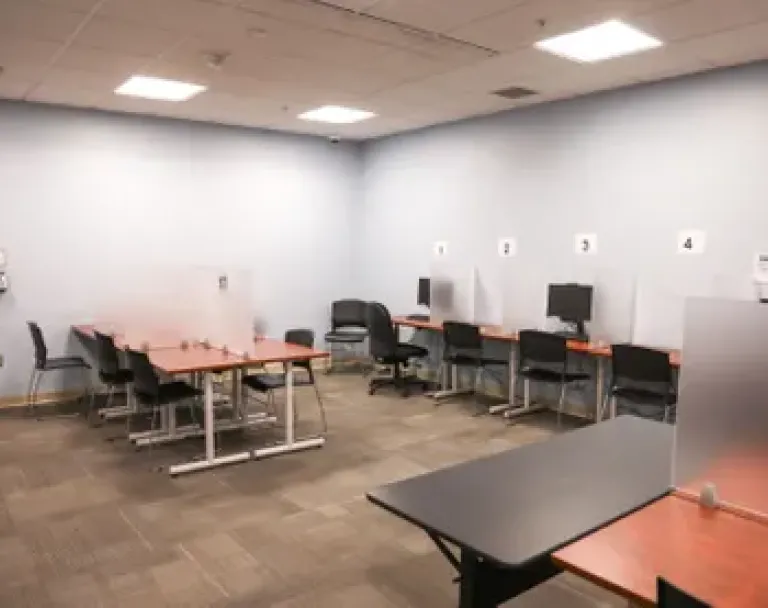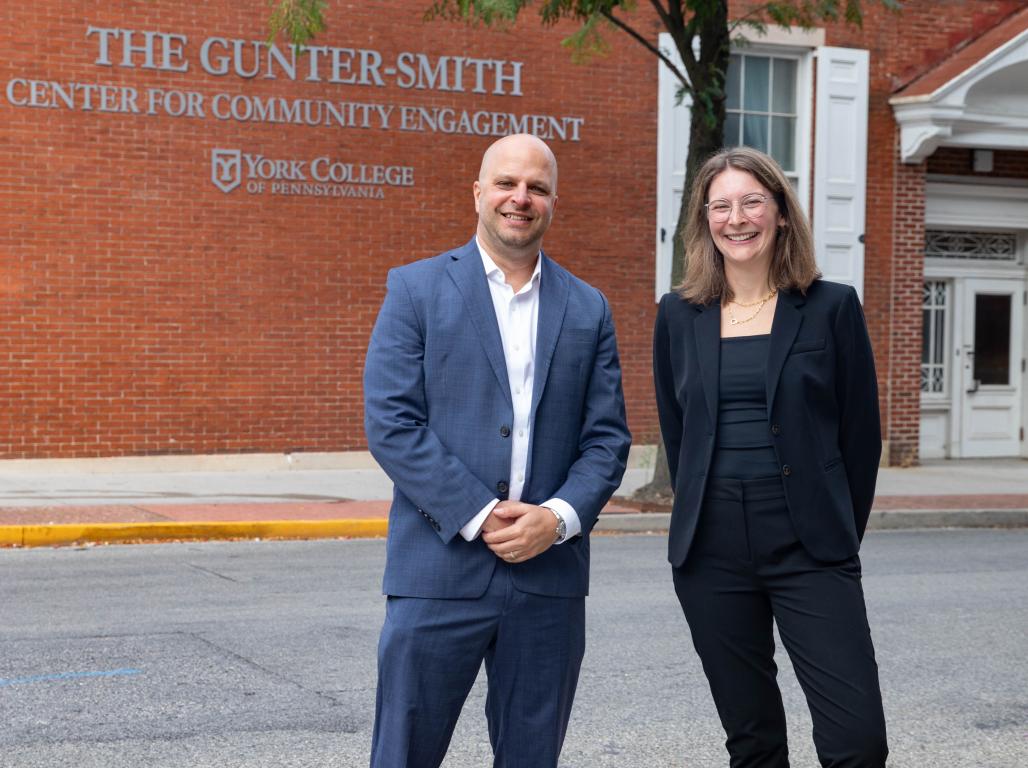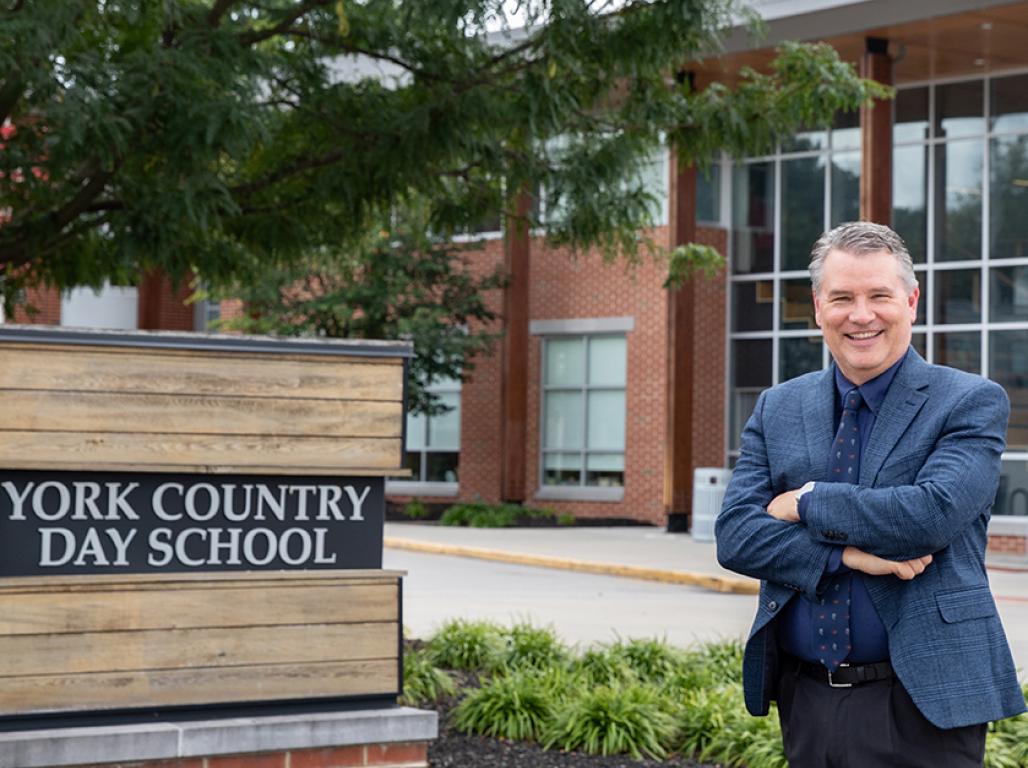Accommodating Accessibility: Encouraging Conversations About Disability Services

Accommodating Accessibility: Encouraging Conversations about Disability Services
December 21, 2022Current and former York College of Pennsylvania students, as well as Director of Student Accessibility Julie Rasmuson, speak about their experiences with disability and Student Accessibility Services, both at York College and in their daily lives.
Julie Rasmuson is no stranger to working with disabilities and accessibility services.
Rasmuson, who is the Director of Student Accessibility at York College, started out at the College in January 2021 as a Student Accessibility Specialist. In April, she was named Director of Student Accessibility.
“I'm really excited to be here,” she says.
Rasmuson has a broad background in disability and education inclusion. She’s been working in the field for 20 years, having consulted on grants with the Pennsylvania Department of Education and various nonprofits. She is also President of Autism York.
She is an adult with disabilities as well and has one child who is on the autism spectrum, and another child with complex medical needs. “I think my personal experience with disability gives me a unique perspective,” she states.
She wants to accomplish a number of things as part of her role at York College. One of the biggest things is helping to erase the stigma of receiving accommodations and support services. The way to do that, she says, is fostering conversations about disabilities and support services.
“I really believe that having a disability is a just a part of our society. It's a part of our culture. It's a part of being human, and it's just a way of being,” she says. “And I really want to build that here as part of our York College culture.”
A campus-wide need
The need for disability accommodations and support services is broad, Rasmuson says. Last semester alone, York College’s Student Accessibility Services served over 450 students. And 25% of the population has some sort of disability, she adds.
“It's a norm, but it's a norm we just don't talk about,” she says.
York College’s Student Accessibility Services, located in Humanities 23, offers a wide variety of services to students. Everything is personalized, she says. Students submit documentation of their histories, and then Rasmuson sits down with them to create a plan for their accommodations. Services offered include access to a testing center in addition to personalized accommodations.
There’s also an Autism Peer Mentor program, where students with autism are connected with another YCP student, who can help them navigate college through meetings, regular communication, and group activities. An honor society for students with disabilities, Delta Alpha Phi, is coming soon to the York College campus.
All services are kept completely confidential, in accordance with the 504 Rehab Act and Americans with Disabilities Act (ADA).
“You wouldn't be at York College if you were not smart and capable and able to obtain a college degree. For our students with disabilities, their accommodations are based off of the fact that they're working so hard with their disability,” Rasmuson says. “We’re really focused on providing equitable access to students with disabilities. This does not ensure success, but for those students who have these extra challenges, it can be the difference in making success achievable.”
A student perspective
Amy (Matthewson) Nieves ’02, who currently works as the Executive Director of the Mayor’s Office for People with Disabilities for the city of Philadelphia, received accommodations during her time at York College.
“I do believe that I wouldn’t be where I am today, and I don’t know that I could have graduated with a degree without that support,” she says. “By having what I needed to participate in college, it opened up the opportunity to learn like everyone else.”
Nieves received personalized support in the Student Accessibility Center that helped her make sure she had the tools she needed to succeed at the College.
“At that time, I think it was called The Hub, where I would go and there was a coordinator, and I had opportunities for additional support with understanding and processing material so I comprehended what the real ask was with my assignments,” she says. “It was a lot of customization.”
Kendall Brown ’25, a Philosophy major, and Mia Arcieri ’24, an Early Elementary Education major, have both received accommodations from YCP Student Accessibility Services. They say that it’s been a positive experience.
“Student Accessibility Services have been very helpful in my test-taking career here at YCP. I came to college without any accommodations, and had no idea where to start,” Kendall says. “They sat me down and helped me figure out what would work for me without having to go through a lengthy and confusing process. Now, I feel more confident than I ever have when it comes to test taking.”
“When I came to York College, I had no idea these kinds of services could exist in a school environment. I remember them reaching out to me and telling me I qualified,” Mia adds. “They provide a safe space for me to take my tests. I love this department and everything they do and want to see accessibility for all students grow and flourish and affect others the same way it has for me.”
A common goal
Overall, Rasmuson and staff in the Student Accessibility Center have worked to create a welcoming and inclusive environment for students. The Center becomes a home for students, she says.
However, erasing the stigma around accommodations isn’t confined to the Center. It’s everyone’s responsibility to make sure individuals with disabilities are included, Rasmuson says.
“It's not just my office's responsibility, it's everybody's responsibility, and everybody needs to be thinking about it,” she says. “As one of those who work in the field, it’s one of the things that we encourage. We want it to be everybody's thought process.”
Nieves also encourages students to advocate for themselves. Everyone uses different tools to get to the same destination, she says.
“You are here because you have a goal. You wouldn't be here if you didn't have a goal, and if you require certain tools and supports to achieve your goal, you have a right to ask for what you need,” she adds.
Categories


